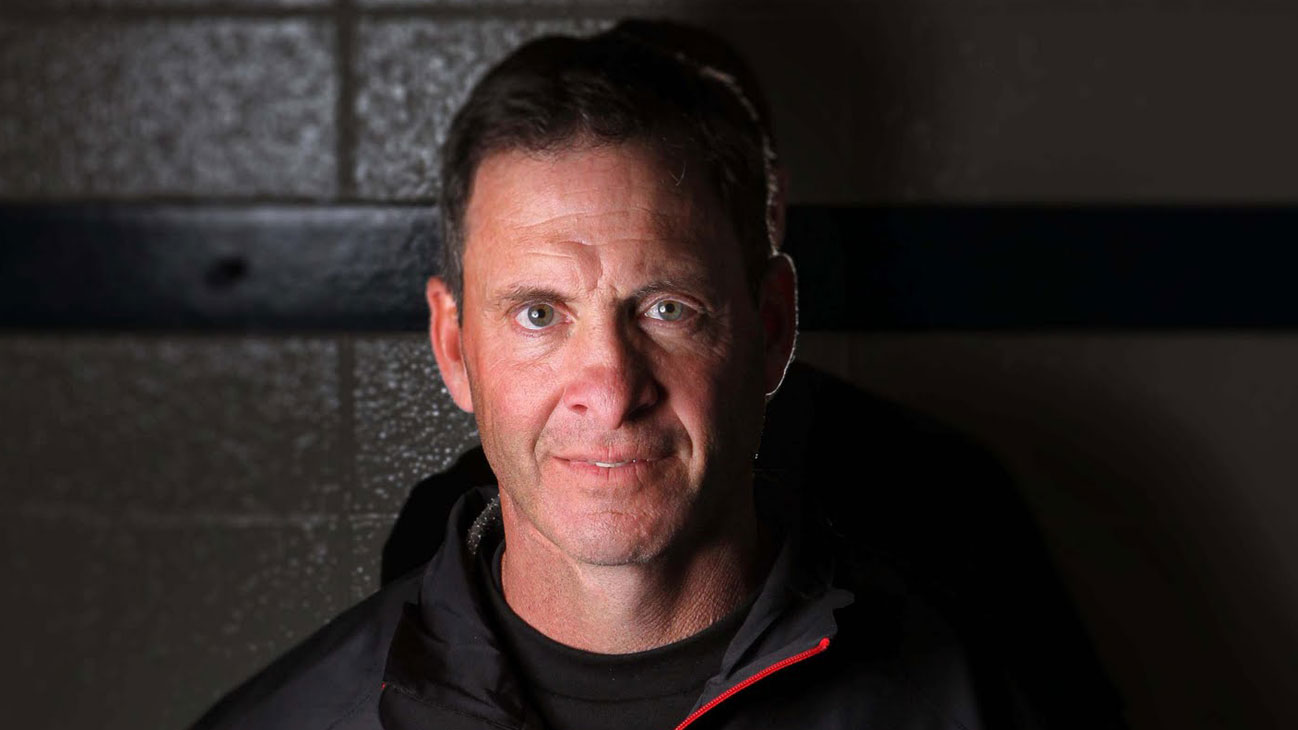No job in the world of sports is as intimidating, exhilarating, and as stress-ridden as that of an NHL hockey goaltender. Now imagine doing that job while suffering high anxiety, obsessive compulsive disorder and depression, and having your career nearly cut short by a skate slicing across your neck. Clint Malarchuk shares his extraordinary and heart-wrenching life story—which includes his long battle with alcoholism and almost ending his life by a gunshot to the head—in his relentless effort to help end the stigma of mental illness and to help others who may suffer as well. The Calgary Herald writes about a new documentary about Clint’s life called Goalie: Life and Death in the Crease:
Clint Malarchuk hasn’t watched all of a new documentary about him.
He knows what is in it, of course. In fact, he is front-and-centre for most of Goalie: Life and Death in the Crease, a gut-wrenching chronicle of the former NHL player’s battles with mental illness and alcoholism.
He talks openly about his troubled childhood, his obsessive compulsive disorder and the bloody 1989 on-ice accident that nearly killed him and left him with post-traumatic stress disorder.
He returns to the exact spot on his Nevada ranch where, in 2008, he attempted to commit suicide by shooting himself in the head as his horrified wife watched. He reflects on the stints in rehab, the ill-advised bar fights, the arrests. He even discusses how he was hospitalized as an anxiety-ridden child in Grande Prairie for mental health issues after attempting to cut into his stomach with a kitchen knife to relieve a chronically churning stomach.
None of this is easy to watch. Not for the viewer and certainly not for Malarchuk.
But those weren’t the parts he turned away from. It was the interviews with those he loves — his mother, sister, wife Joan and, in particular, 17-year-old daughter Dallyn — that were hardest to take as they pull no punches discussing Malarchuk’s descent and the impact it had on them.
“Those are the tough parts,” said the former goalie, calling in from the Toronto airport during a stop on a speaking tour. “They emailed me the link and I had to pause it all the time and watch in little bits. I’ll be honest, there were parts I skipped over. I relied on my wife and family to tell me that they did a good job and that it was all good.”
Directed by brothers Geordie and Buddy Day for Calgary-based Pyramid Productions, Goalie: Life and Death in the Crease obviously touches on Malarchuk’s hockey career. Now airing on Super Channel, it tells of an early childhood where he escaped a troubled home life by obsessively training; his NHL career playing for the Quebec Nordiques, Washington Capitals and Buffalo Sabres in the 1980s; his time in San Diego and Las Vegas for the IHL; and his coaching stint, which ended in 2014 when he left the Calgary Flames.
Horrific images of Malarchuk’s blood-spurting 1989 accident in Buffalo — where a player’s skate sliced his jugular vein — are also included in the documentary.
But while hockey provides the backdrop, Goalie is mostly concerned with Malarchuk’s personal life, drawing heavily from his 2014 memoir, Crazy Game.
While it may be comforting to imagine that writing the book with Dan Robson was therapeutic and cathartic for the hockey player, it wasn’t. Which is why he initially turned down Pyramid Productions when they pitched a documentary about his life. In fact, he said no many times.
“The book was so hard to do and I quit doing it so many times,” Malarchuk says. “Dan Robson, the co-author, I give a lot of credit to. I just told my story. But he would say ‘What were you thinking? What were you feeling when that was going on?’ That’s what made the book so raw and emotional. I went to the deep dark places. I even relapsed into alcohol when I was writing the book. That’s how fricking hard it was. That being said, I had learned a lesson from the book. To do the documentary, I had to be very, very guarded and careful emotionally and psychologically (about where I was.)”
While the Day brothers’ use of low-key dramatizations and real settings to tell the story give Goalie a bit of a cinematic sheen, it’s presentation of mental illness is unvarnished. What results is an often chilling look at a man disappearing into a fog of anxiety, rage and delusions and the quiet heroism of those who helped him through it.
“We thought his hockey career was interesting, but the story of his actual life and mental illness was more compelling,” said Buddy Day. “We wanted to tell that story succinctly. We wanted to use the key people that really had something to say about it. We narrowed down the number of interviews to six or seven people, definitely by choice. Because mental health is so intimate, we really wanted to have an intimate movie where you just hear from people who were actually there and actually tell you what it was like.”
That includes his family, a few friends — including fellow former NHL goaltender and Sportsnet commentator Kelly Hrudey — and even his therapist.
As difficult as it was to examine the harrowing moments of his life for a second time, Malarchuk sees it as continuation of the higher good his book achieved.
“I always thought my purpose was to be an NHL player and an NHL coach,” he said. “But I always had these demons follow me. After the book came out and the feedback, I know what my purpose is. The NHL gives me the platform and the demons being conquered gives me something to talk about and give people hope.”

